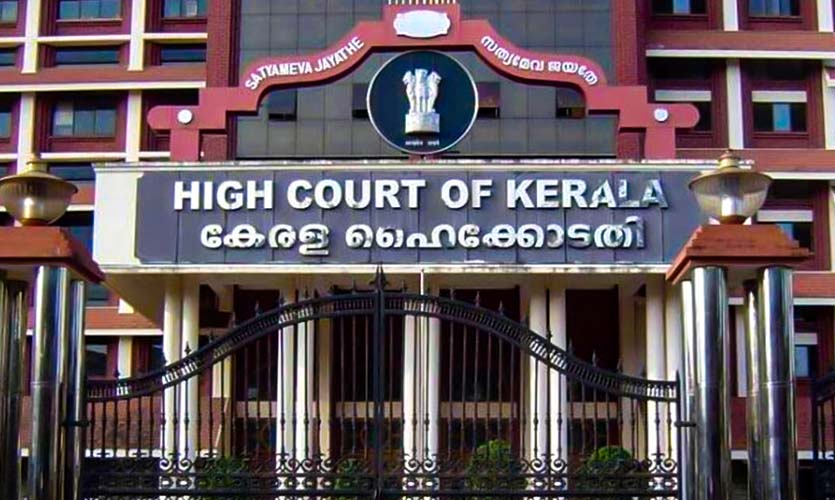The Kerala High Court has urged the central government to consider creating a uniform central legislation to regulate charitable organisations and religious institutions.
In addition to exploring the concurrent list of the VIIth schedule of the Constitution of India, the court urged the government to also consider the constitution of a centralised body to handle the income, expenditure, acquisition, and disposal of assets of such bodies. The Kerala HC requested that the central government explore the possibility of creating a centralised force/body to serve this purpose. During the course of considering massive encroachment on government property by religious/charitable institutions, the single bench of Justice P Somarajan made this request.
The court concluded, “The fact that nobody has raised the issue so far and nobody will have the courage to raise the issue against such organised encroachers would demonstrate the existence of an invisible conducive atmosphere favourable to organised encroachers/land mafia and the upper hand they enjoyed without challenge.”
According to the judgement, this reprehensible inaction by the government, political leaders, and society at large has provided leverage for the massive assaults by religious/charitable institutions/organisations over large tracts of properties throughout Kerala, along with the ease with which they could obtain pattayam based on the fact that they possessed a vote bank.
Kerala still has a congenial environment promoting encroachment on government lands, and apparent acquisitions of properties by such institutions. The result has been the concentration of enormous wealth and power in the hands of religious institutions, who now exert immense influence over government machinery that is detrimental to democratic principles and the principle of equality and liberty guaranteed by the Constitution.
It was held by the Supreme Court that both state governments and the central government are obliged to preserve bona vacantia and public property. It is imperative to investigate and take action against those who ostensibly obtained property through such bodies/institutions.
Inherently, the state government is required to acquire all bona vacantia property and preserve it, remove all forms of encroachment on government land, examine the validity of pattayams obtained by misusing the Land Assignment Act, if any, and conduct a survey to discover such incidents throughout Kerala. The state government (led by the chief secretary) shall form a state-wise high power body for its implementation.
When it is deemed necessary, forest officials can also be contacted for assistance. The state government should incorporate a provision for a periodic or quinquennial survey into state law, according to the court, in order to identify any encroachment or invasion over state government property, public property, or property that is bona vacantia. It goes without saying that in accordance with the Land Conservancy Act’s stipulations, the state government is also required to file lawsuits against negligent officers and offenders. The state government must finish the survey within six months following the release of today’s report.
As per the ANI, the court directed: “The misdeeds and mischief done by various persons/institutions to extort the property of the public shall be investigated through the agencies available under the State Government such as Vigilance and Anti-Corruption Bureau, etc.”
Read more: Former Congress Minister Says The Bhagavad Gita Preaches ‘Jihad’, Sparks Row










